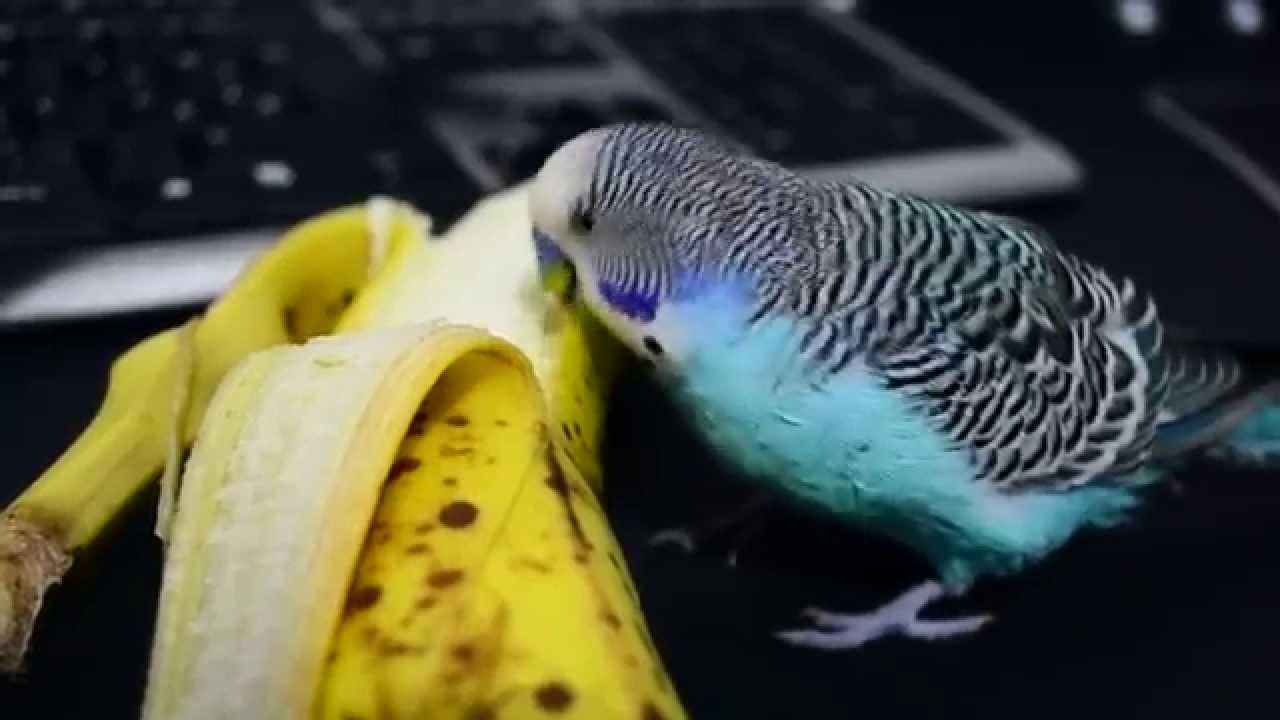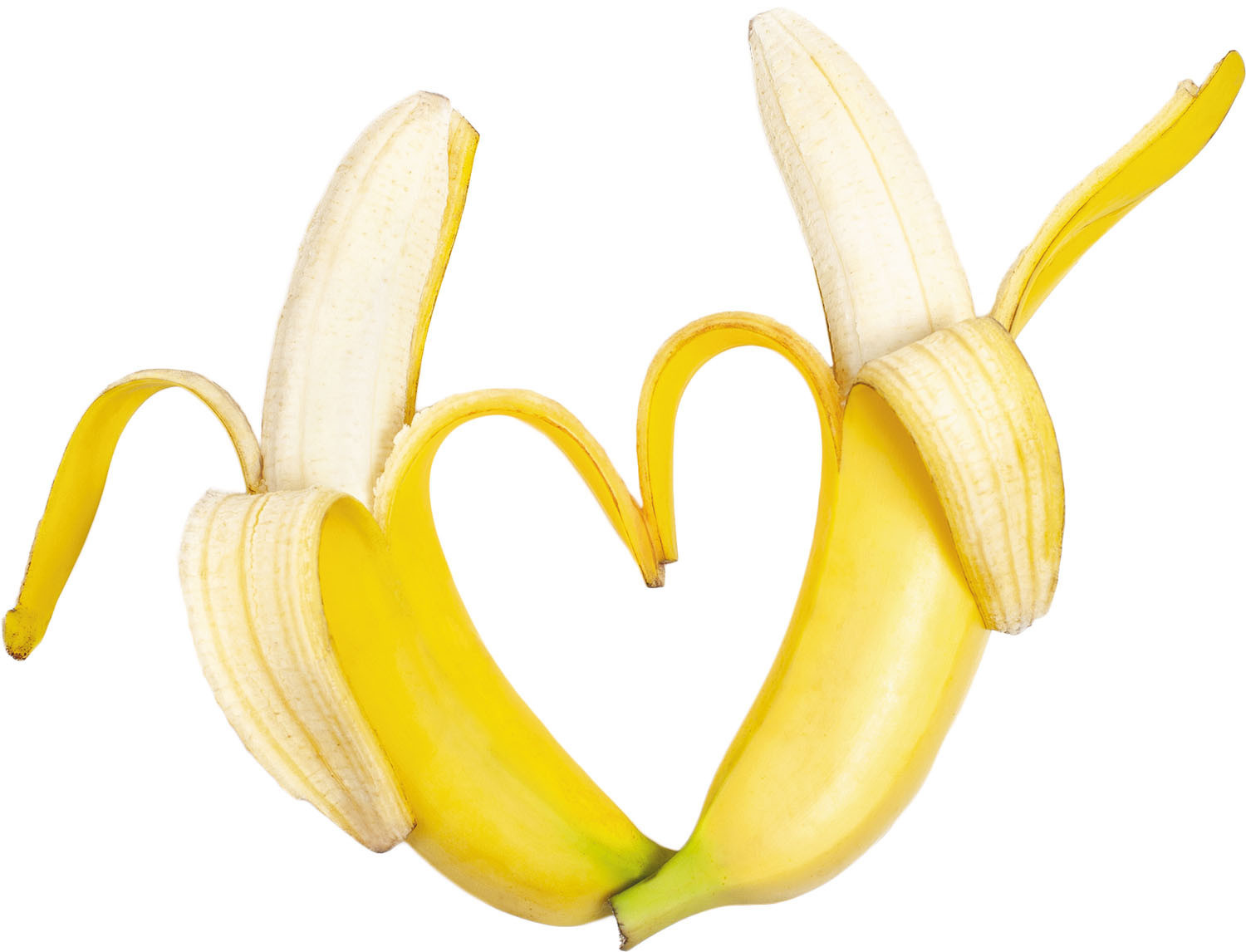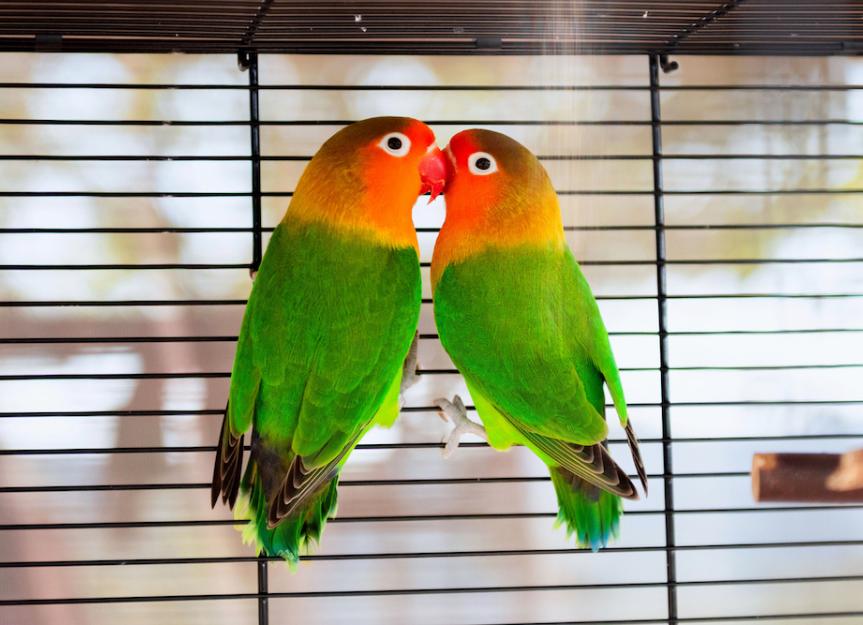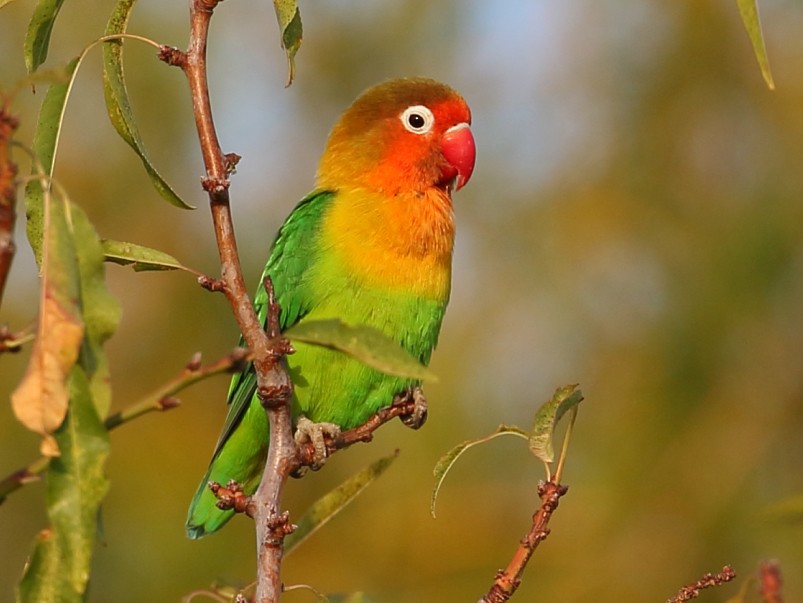Can Lovebirds Eat Bananas? Unveiling The Sweet Secrets Of Your Feathered Friends Nutrition
You may see a summary of the information I was able to obtain below. Can lovebirds eat bananas, then? Bananas are a meal that lovebirds may consume and typically like. The majority of fruits, including bananas, are completely safe to feed your lovebird, and doing so has several advantages. Iron, Magnesium, Vitamin B6, Vitamin A, and other vital minerals found in bananas are all beneficial to your bird's health. Bananas are best consumed in moderation and less often due to their high natural sugar content.
Author:Sophia HarperReviewer:Maya ReyesOct 08, 202333.9K Shares999.1K Views
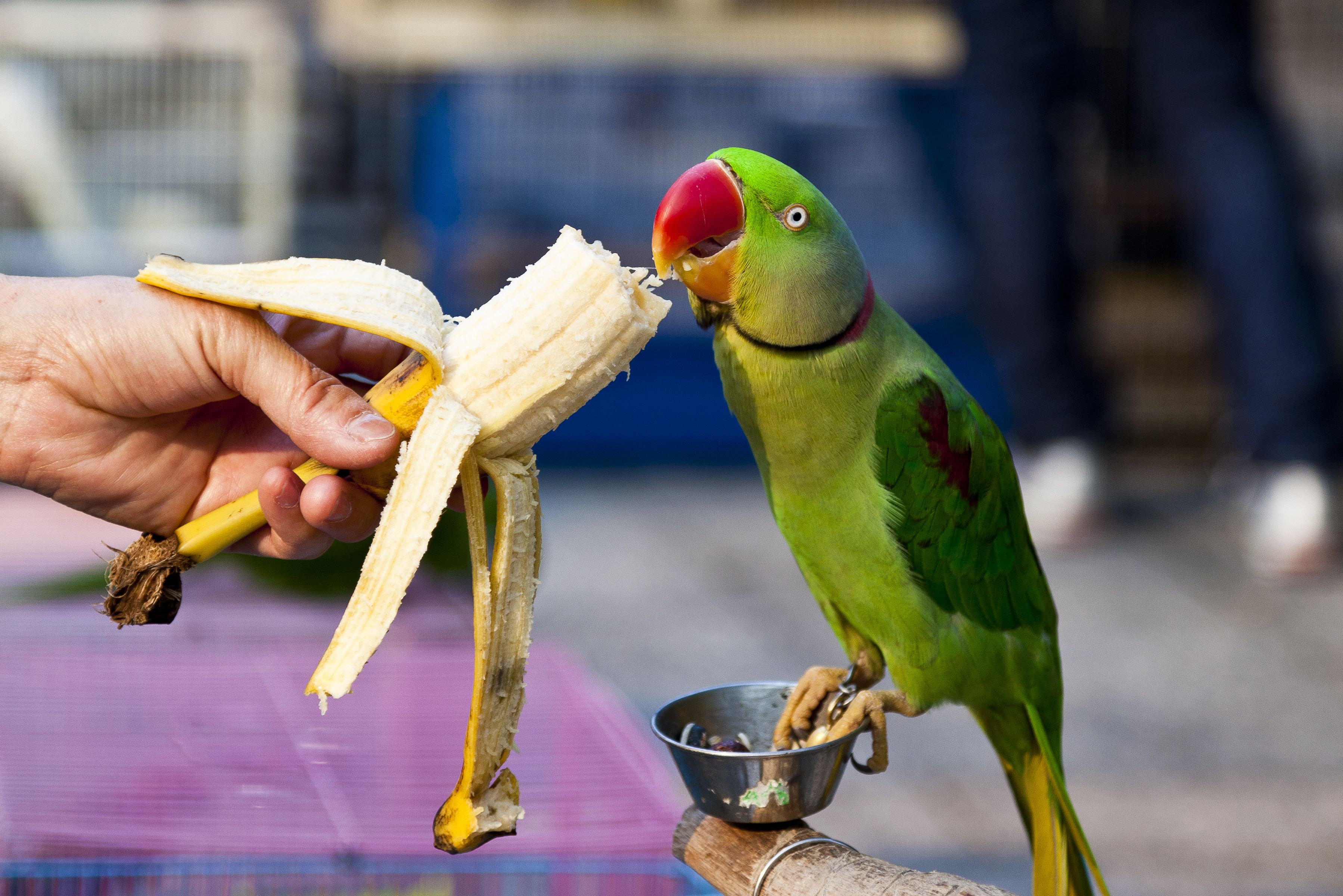
If you have a pet lovebird, you will obviously want to know what you can give it that is safe to eat. Can bananas provide your bird with the same kind of nutritious, pleasant, and healthful snack that they do for you? I made the decision to spend some time doing research, taking into consideration the advice of avian specialists and the stories/experiences of lovebird owners.
You may see a summary of the information I was able to obtain below. Can lovebirdseat bananas, then? Bananas are a meal that lovebirds may consume and typically like. The majority of fruits, including bananas, are completely safe to feed your lovebird, and doing so has several advantages. Iron, Magnesium, Vitamin B6, Vitamin A, and other vital minerals found in bananas are all beneficial to your bird's health. Bananas are best consumed in moderation and less often due to their high natural sugar content.
Instead of being a mainstay of the diet, they need to be a pleasure. Offering snacks to lovebirds who are fed pellets is a wonderful way to provide diversity to their diet and to strengthen your relationship with your pet. We'll look at the health advantages of bananas for your lovebird in the parts that follow, as well as go over some feeding advice and other fruit options that are safe to provide. So be sure to read all the way through; your lovebird will appreciate it!
Can Lovebirds Eat Bananas?
When offered, most lovebirds eat bananas. Many owners claim that their pet lovebird eats bananas, according to a check of any of the several online lovebird communities. It's vital to think about why this is probably the case. There are about 200 different kinds of lovebirds, and this particular bird is native to Africa.
These birds consume whatever that is accessible to them in their surroundings. As a result, a variety of foods, such as plants, seeds, nuts, berries, and fruits including bananas grow in their habitat. As a result, these birds get used to eating it and naturally want it. They normally like eating the fruit very much.
Having stated that, not all lovers will consume bananas. Any bird, or any animal for that matter, can attest to this. There are always exceptions to the norm and certain birds that would like to be left alone, even though all birds have similar habits and taste preferences. There is nothing inherently wrong with this, and as an owner, you would be wise to follow your birds' preferences if they do not have a particular food preference bananas or anything else.
You should always try to get any leftover food out of the cage in this situation before it goes bad. However, since they are delicious and packed with nourishment, bananas are often difficult to resist. They may be safely included into the diet of these birds as a part of a balanced, diverse diet.
Everything boils down to knowing how to feed your pet lovebird. One of the finest things you can do is learn about and mimic the food of lovebirds in their native habitat. Taking care of lovebirds entails much more than a daily bird feed replenishment. Lovebirds hunt for food throughout savannahs, woods, and grasslands in their native habitats.
In order to provide a balanced diet, a responsible owner should include plants, seeds, nuts, berries, fruits, and other minor delicacies. Mind you, the majority of them should be provided in sensible portion quantities. Lovebirds kept in captivity should be fed high-quality, specialized pellets with a balanced diet. This will encourage your bird's natural eating habits while giving it all the nourishment it needs to be healthy.
Health Benefits Of Bananas For Lovebirds
Unquestionably, bananas are good for your health, but how about for the health of your lovebirds? Do bananas have any nutritional value, or are they just a pleasant treat? Bananas are a good source of beneficial nutrients for your bird, including iron, magnesium, Vitamin A, and B6. Here are several ways that these nutrients might help your pet lovebird:
Vitamin A
The health of your bird's eyes, feathers, and reproductive system depend on vitamin A, which also supports proper immune system operation. Since most birds lack vitamin A, which makes them more prone to illness, giving your bird a nutritious, diverse food rich in vitamin A may help it stay healthy and live a long life.
Magnesium
Magnesium plays a key role in the creation of robust beaks and feathers as well as healthy bones. It enhances nerve impulses as well. Magnesium promotes good cardiac function for your bird by stimulating brain neurons and muscle coordination.
B6 Vitamin
For your lovebird's body to absorb food and nutrients, these complex vitamins aid in food and nutrient breakdown.
Iron
Hemoglobin, which aids in the transportation of oxygen in the blood, is produced in large part thanks to iron. Iron should be used with caution since too much may produce iron storage disease, a problem that often affects birds, and too little can result in anemia.
What Other Fruit Can Lovebirds Eat?
All common fruits are virtually edible to lovebirds. However, it's crucial to note that, almost always (particularly in the case of apples), the seeds and pits should be removed. Again, it takes trial and error to figure out which fruits your lovebird prefers. Offer a variety of meals, and observe which ones they appear to love the most as they consume them. Lovebirds require a varied diet that consists mostly of seeds, so avoid overfeeding them with certain items simply because they seem to like them. Here are some popular fruits for lovebirds:
- Bananas
- Citrus
- Berries
- Mango
- Fig
- Melon
- Kiwis
- Grapes
- Plums
- Pears
- Watermelon
How To Feed Banana To Your Lovebirds
It's important to realize that you should never offer cooked bananas to your lovebirds before learning how to feed bananas to lovebirds. As a result, it becomes extremely challenging for your birds to digest and breaks down the fibers. The fact that raw bananas are nutrient-rich makes them a perfect fruit to provide as a treat.
While non-organic bananas are completely fine to feed your birds, you can be sure that they will be exposed to less pesticides and herbicides if they are organic, so you should try to get them if you can. Lovebirds can eat banana peels, but it isn't advised. Although organic types are less likely to contain pesticides, these birds do not really like their strong taste and rubbery texture.
Because they are low in starch, you may also think about giving your birds the greenest bananas. Your lovebird may find it challenging to digest starch since it transforms into sugar. The digestive enzymes needed to break down starchy meals are not present in the beaks of lovebirds.
A buildup of starch may result in diabetes, cerebral plaque, blocked arteries, and other health problems. These are often the best methods for presenting bananas:
- You can hand-feed small pieces of raw banana to your lovebird
- Cut up small pieces of banana and mix it in a container with other pieces of fruit.
Simply make sure your lovebird consumes one tablespoon or more of pelleted food daily. This will guarantee that they are getting the nourishment they need. Every time you give your pet bird a new meal, you should start off cautiously and gradually. As they attempt to adjust to this "new food," you do not want your bird to have any intestinal trouble. You also don't want them to have any preferences, like as disregarding their usual food or growing too full to consume their pellets.
Some Tips You Should Keep In Mind
Feeding lovebirds bananas can be a delightful treat for these small parrots, but it's essential to do so in a responsible and safe manner. Here are some tips to keep in mind when offering bananas to your feathered friends:
- Moderation is Key -Bananas should be considered an occasional treat rather than a staple in your lovebird's diet. They are high in natural sugars, so excessive consumption can lead to weight gain and other health issues.
- Select Ripe Bananas -Choose ripe bananas with yellow or slightly browned skin. Ripe bananas are softer and easier for lovebirds to eat and digest.
- Clean and Prepare Carefully -Rinse the banana slices thoroughly to remove any pesticides or residue. Be sure to remove any seeds as they can be a choking hazard for birds.
- Portion Control -Offer small, bite-sized pieces of banana. One or two small chunks per lovebird should be sufficient. Avoid giving them an entire banana or large portions.
- Monitor for Allergic Reactions -Just like humans, some lovebirds may have allergies or sensitivities to certain foods. Watch for any adverse reactions, such as diarrhea or changes in behavior, after introducing bananas.
- Balance the Diet -Bananas should complement a balanced diet that includes a variety of foods. Lovebirds require a mix of seeds, pellets, fresh fruits, vegetables, and occasional treats like bananas to thrive.
- Offer Other Fruits and Vegetables -Don't limit your lovebird's diet to just bananas. Offer a diverse range of fruits and vegetables, such as apples, carrots, leafy greens, and berries, to provide different nutrients and flavors.
- Freshness Matters -Ensure that any fruit or vegetable offered to your lovebirds is fresh and free from mold or spoilage. Remove any uneaten portions promptly to prevent contamination.
- Hydration -While bananas can provide some moisture, make sure your lovebirds always have access to fresh, clean water. Hydration is crucial for their overall health.
- Consult an Avian Veterinarian -If you have concerns about your lovebird's diet, health, or any dietary changes, consult with a qualified avian veterinarian. They can provide personalized guidance and ensure your lovebird's specific needs are met.
- Observe Your Lovebirds -Pay attention to how your lovebirds react to bananas. Some may eagerly enjoy them, while others may not be interested. Respect their preferences and don't force them to eat bananas if they're not enthusiastic.
In summary, while lovebirds can indeed eat bananas and enjoy their sweet taste, responsible feeding practices are essential. Offer bananas as an occasional treat, ensure they are ripe and clean, and always prioritize a balanced diet to meet your lovebird's nutritional needs. Remember that individual lovebirds may have varying preferences, so observe their reactions and adjust their diet accordingly.
FAQs
Can Lovebirds Eat Banana?
Yes! Lovebirds can eat bananas! Not only does it make for a great snack, but the benefits of adding bananas to part of your bird’s diet can go a long way!
How Much Banana Should A Lovebirds Eat?
A small slice of banana should be plenty for them as a snack, or if you want to share yours, that works perfectly too!
Can Lovebirds Eat Too Much Banana?
No! The great thing about bananas is, it’s low in fructose(natural fruit sugars) which is usually quite harmful to birds as they lack the enzyme to break it down properly! The only thing I can say to watch out for is quantity.
Can Lovebirds Eat Banana Peels?
Birds can eat banana peels although, they shouldn’t eat too much as they can’t digest them properly! The real winner when it comes to banana peels is how much fun your bird has playing with them!
Final Words
In conclusion, lovebirds can safely eat bananas as an occasional treat. These fruits offer various essential nutrients that can benefit your feathered friends when given in moderation. Along with other fruits, bananas are healthy for lovebirds to consume. However, it is crucial to stress the need of giving your lovebird a nutritionally sound pelleted diet.
It should always constitute the bulk and foundation of your pet's diet. It is preferable to feed your bird the greener form of bananas as they have less starch than other varieties. The amount of bananas in your bird's diet should be minimal since it has to have a diversified diet that also contains other fruits, vegetables, plants, and herbs.
Because they are packed with nutrients, fresh foods also contribute to hydration and offer variety for dietary enrichment, making them excellent snacks. When your bird is young, you should expose it to different things like bananas since it will be more probable that it would appreciate the flavor.
After reading this post, perhaps you will see how important it is to have a reference manual close at hand so that you can identify the fruits and other fresh foods that are safe to feed your lovebird.

Sophia Harper
Author
Sophia Harper’s photography acts as a portal to the soul of the places she visits. Drawn to South America’s landscapes and cultures, she has spent years capturing everything from the majesty of ancient ruins to the vibrancy of urban streets.
Sophia’s work isn’t just about documenting moments; it’s about evoking the emotions and stories behind them. A dedicated photographer, she has worked with local communities across South America to capture their rich cultural narratives through her lens.

Maya Reyes
Reviewer
Maya Reyes’s wanderlust was sparked in the temples of Luang Prabang, where the scent of lemongrass and the chants of monks revealed the transformative power of travel.
Since then, her journey has been defined by cultural immersion and authentic connections. From learning batik in Indonesia to sharing meals with nomadic families in Mongolia, Maya seeks experiences that highlight the human stories behind each destination.
Travel for her is a way to weave her narrative into the world’s cultural tapestry, creating bridges across diverse ways of life. Maya has traveled to 15 countries and shares her insights through writing and storytelling.
Latest Articles
Popular Articles
